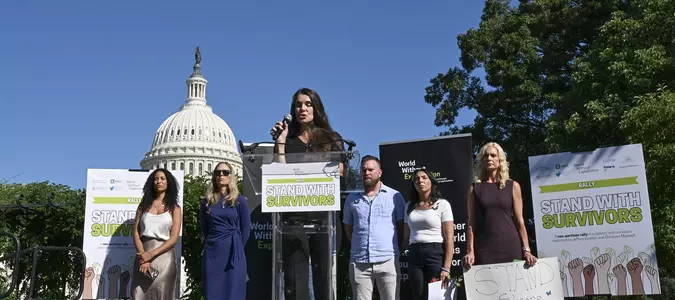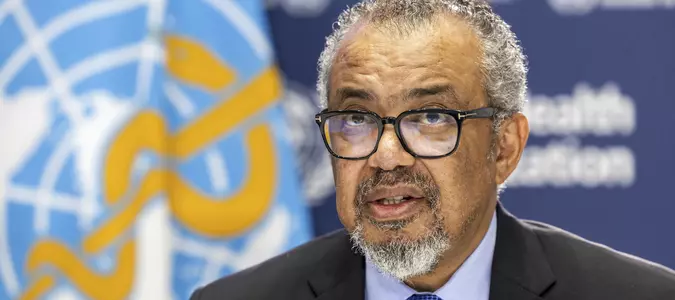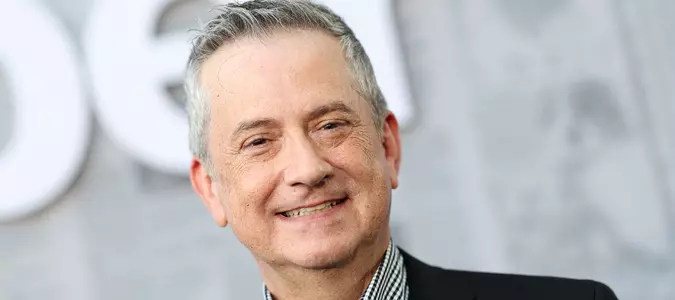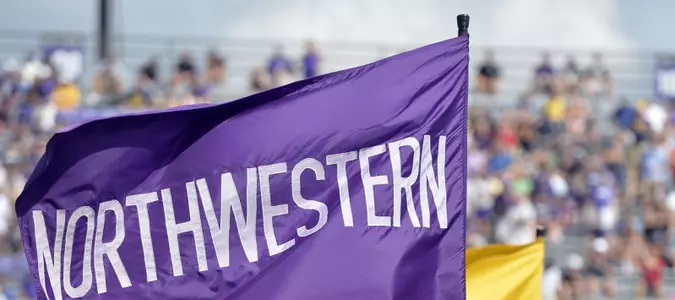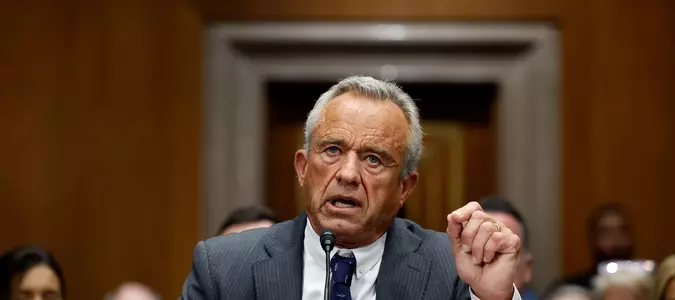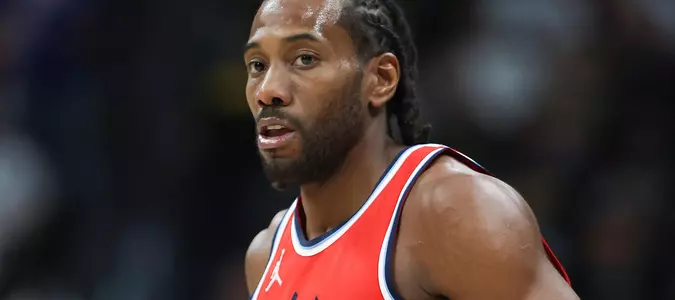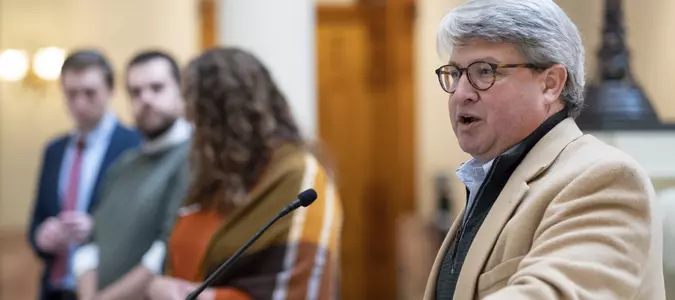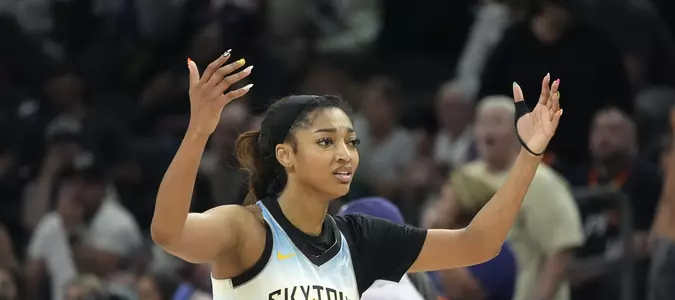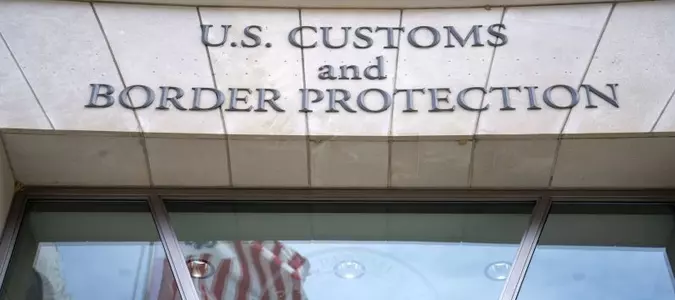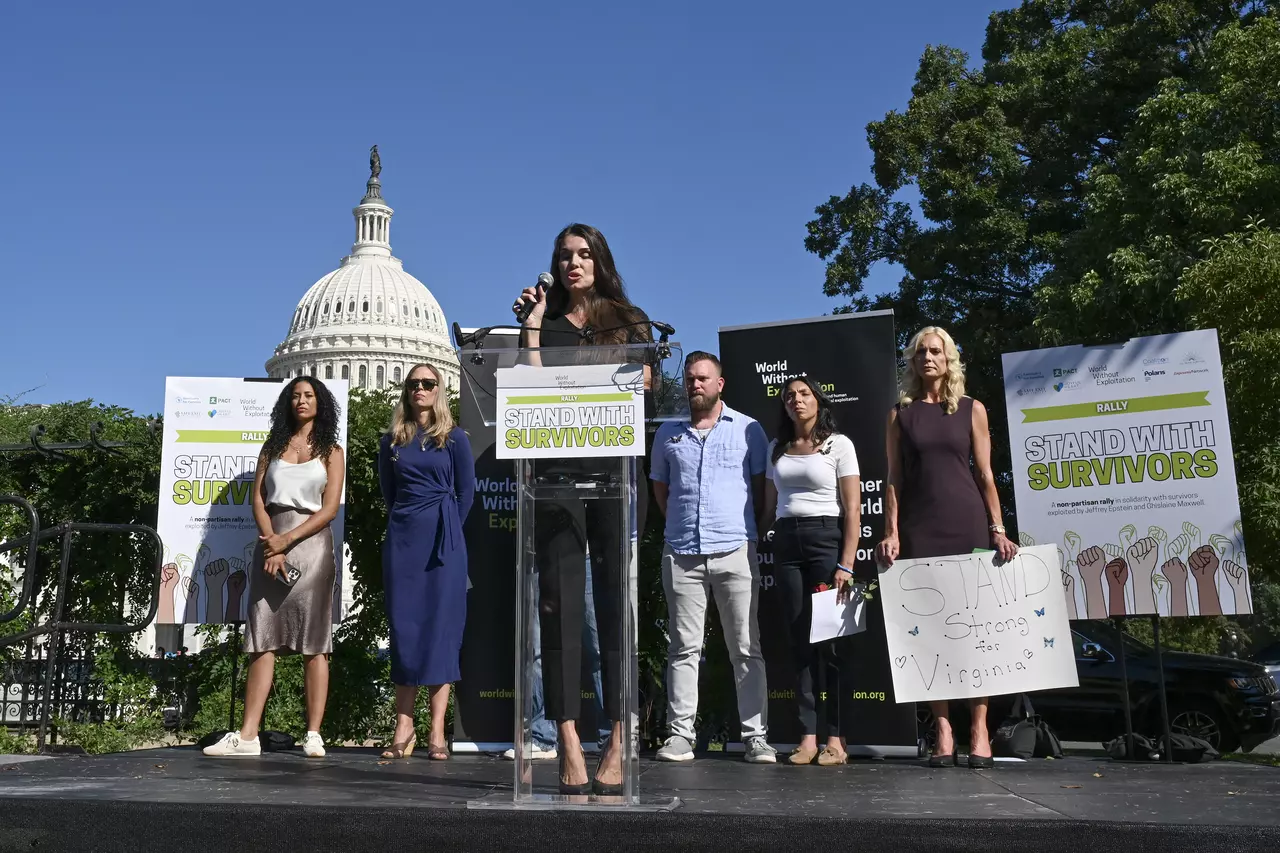

Commentary: The Epstein victims’ Capitol appearance marks a turning point
On Wednesday morning, I turned on an MSNBC livestream to hear 10 heroic women speak at a news conference on the steps of the Capitol. My husband sat next to me. His eyes filled with tears. Marina Lacerda, who said she was first invited to give “massages” to the shady and mysterious financier Jeffrey Epstein when she was a 14-year-old New York schoolgirl, spoke in public for the first time, ...

Teresa Helm, a survivor of sexual abuse by Jeffrey Epstein speaks at the Stand with Survivors Rally in support of Jeffrey Epstein and Ghislaine Maxwell's victims, in Washington, D.C., on Sept. 3, 2025.
Roberto Schmidt/AFP/GETTY IMAGES NORTH AMERICA/TNS
On Wednesday morning, I turned on an MSNBC livestream to hear 10 heroic women speak at a news conference on the steps of the Capitol. My husband sat next to me. His eyes filled with tears.
Marina Lacerda, who said she was first invited to give “massages” to the shady and mysterious financier Jeffrey Epstein when she was a 14-year-old New York schoolgirl, spoke in public for the first time, urging the release of all related files held by the government.
Psychologist Annie Farmer, who also spoke, said she had been trying to alert law enforcement since 1996, when she reported to the FBI that she’d been victimized at the age of 16 by Epstein and his partner in crime Ghislaine Maxwell. Nobody had listened to her, and Epstein went on to derail the lives of hundreds of other girls.
Now people are listening. The voices of these once powerless and voiceless young women, long ignored and belittled, are now amplified beyond anyone’s wildest imagining.
In the words of French women who chanted outside the trial of Dominique Pelicot: Shame must change sides. There is no going back. The #MeToo movement of 2017 is still reverberating. This is one of the few national stories that President Trump has been unable to control or dismiss as a hoax. The stories these women tell are moving the hearts of Americans of every political stripe.
“We are real human beings. This is real trauma,” said survivor Haley Robson. “I would like Donald J. Trump and every person in America and around the world to humanize us, to see us for who we are, and to hear us for what we have to say. There is no hoax. The abuse was real.”
At its dark heart, the Epstein scandal has little to do with conventional politics, mysterious client lists or faked suicides. The conspiracy has been there all along, lying in plain sight. It isn’t a conspiracy of the left or the right. It is a conspiracy of money and power against the vulnerable and voiceless. Epstein had the money and the power. His young victims had no source of power beyond their own voices and their stubborn refusal to be silenced. For years the media ignored them, and so did much of law enforcement.
Farmer and other Epstein victims, aided by a handful of dogged pro bono attorneys and allies including the chief of the Palm Beach Police Department, refused to stay quiet.
In 1997, Los Angeles model and actress Alicia Arden reported to the Santa Monica police that Epstein had gotten her to undress and then groped her buttocks in a hotel room at the Shutters on the Beach hotel during a purported “model interview” for the Victoria’s Secret catalog. A police report was filed under the classification of “sexual battery,” but Arden never heard back.
In 2003, Farmer and her sister Maria, who also said she was victimized, spoke to a reporter at Vanity Fair who was writing an Epstein profile. Their stories were edited out before the story ran.
In 2005, a woman in Florida discovered that Epstein had given her stepdaughter hundreds of dollars, and the woman went to the Palm Beach police. Investigators uncovered a vast network of sexually manipulated middle school and high school girls — only to see local prosecutors avoid bringing Epstein to trial. Perhaps the girls weren’t considered “perfect witnesses.” Some were middle-class, straight-A students, while others grew up in trailer parks, had addicted parents or had run away to escape sexual abuse or violence. Their stories were credible and heartbreakingly similar: They had been lured to Epstein’s house in Palm Beach to earn $200 for giving him a massage. Then the trap sprung. In an enclosed isolated room, they said, Epstein, sometimes aided by Maxwell, had groomed and coerced them into unwanted sex acts, destroying their trust in other people and their faith in themselves.
Many returned repeatedly or were paid to lure in other girls. Some dropped out of high school. Others tried to numb feelings of worthlessness and shame by cutting themselves or using heroin and other drugs. Some had flashbacks and nightmares. At least one outspoken survivor, Virginia Giuffre, recently killed herself. Given the enormity of damage that sexual molestation can do to a young girl’s psyche, the failure to listen to these girls and stop Epstein is a national disgrace.
By 2007, the FBI in southern Florida, alerted by the frustrated Palm Beach police chief, had heard from more than 35 potential victims. It looked as though a major federal prosecution was about to move forward. But money and power again trumped justice. In 2008, Epstein’s legal team, spearheaded by the notorious, now-retired Harvard law professor Alan Dershowitz, engineered perhaps the most outrageous criminal plea deal in history.
Largely ignored by the national press, this sweetheart deal allowed Epstein to plead guilty to one minor charge of soliciting prostitution and another for soliciting a minor. He served 13 months of his 18-month sentence in a Palm Beach detention facility and was chauffeured away on “work furlough” six days a week to hang out at a foundation he controlled. He and all co-conspirators, named and unnamed, were granted immunity from further prosecution in southern Florida. His young victims, who had spoken up with such courage, were not consulted or even informed prior to the plea deal.
On release, Epstein gave himself a party in Manhattan, recast himself as a philanthropist and continued to abuse young girls. In 2012, Maxwell gave a TED talk proclaiming her love of the oceans.
Then in 2017 came the thundering storm of #MeToo. With their voices amplified by the internet, victimized women cast off shame and spoke up by the millions. In November 2018, the Miami Herald’s Julie K. Brown published a long-overdue expose about Epstein and his powerful allies, “Perversion of Justice,” that ignited public outrage. It was read by federal prosecutors in the Southern District of New York, who weren’t bound by the Florida agreement. In the summer of 2019, Epstein was arrested on multiple new charges and held without bail in the Tombs, New York’s notorious detention center. There, a month later, he hanged himself with his bedsheet, giving birth to myriad conspiracy theories and again depriving his victims of their chance to confront him.
His partner and enabler Maxwell, who is serving a 20-year sentence on her conviction for sex-trafficking minors, was recently transferred to a minimum-security prison camp in Texas, where her fellow prisoners include Elizabeth Holmes, the founder of Theranos. Is this special treatment? Perhaps. Regardless, something has changed: Farmer and her many sister-victims are finally being heard.
A small proportion of men throughout time — from the legendary Bluebeard to the real-life Marquis de Sade to Jeffrey Epstein and Harvey Weinstein — have used their wealth, power, physical strength, drugs, trickery and armies of enablers to imprint their voracious sexual cruelty on the bodies and psyches of vulnerable girls and women. Until the last decade or so, society gave them something close to a free pass.
Whether these men are narcissistic, sociopathic, devoid of empathy or just plain evil doesn’t really matter. Until #MeToo hit, they largely moved with impunity through a society that worships money and power and often disregards the voices of victimized women. Such men no longer control the telling of the story. The question now is not whether such predators exist, or the lasting damage they do, but whether we will listen to their victims and do something about what we hear.
____
Journalist Katy Butler is the author of “Knocking on Heaven’s Door” and “The Art of Dying Well.”







